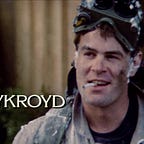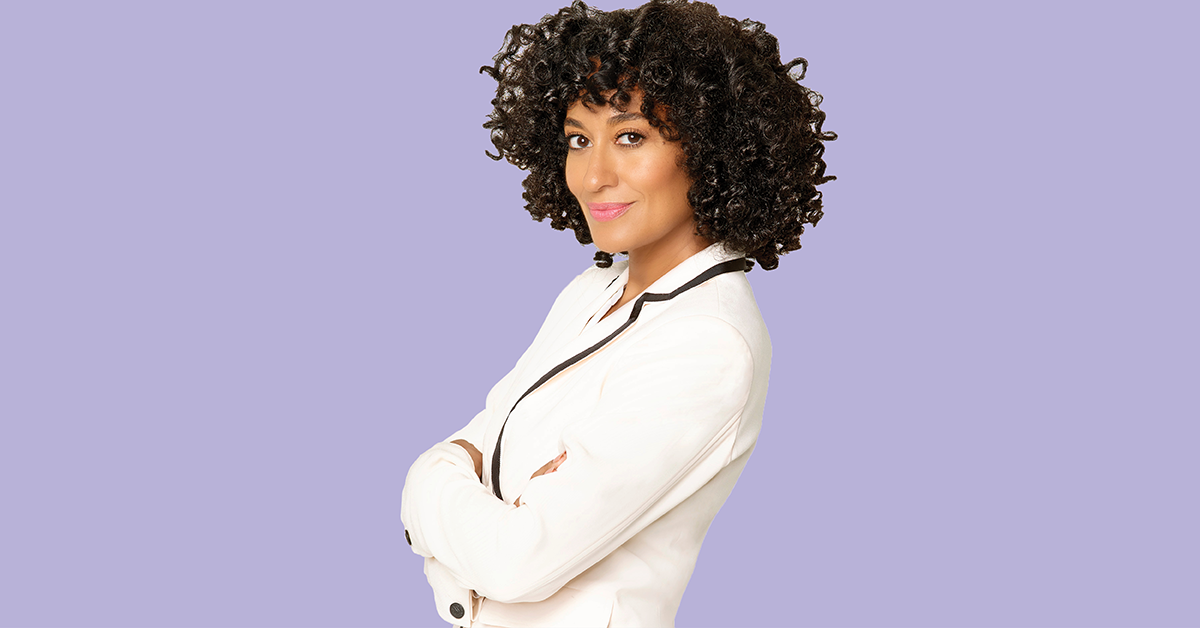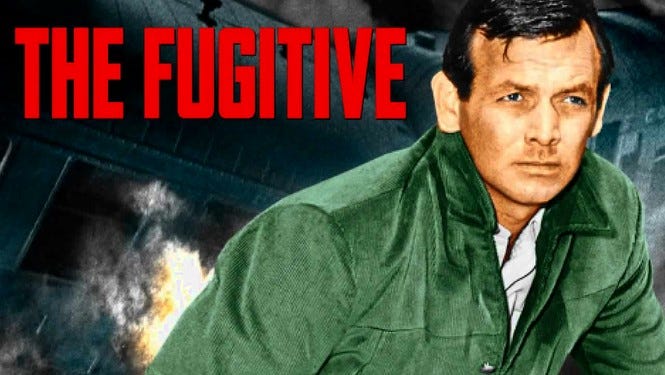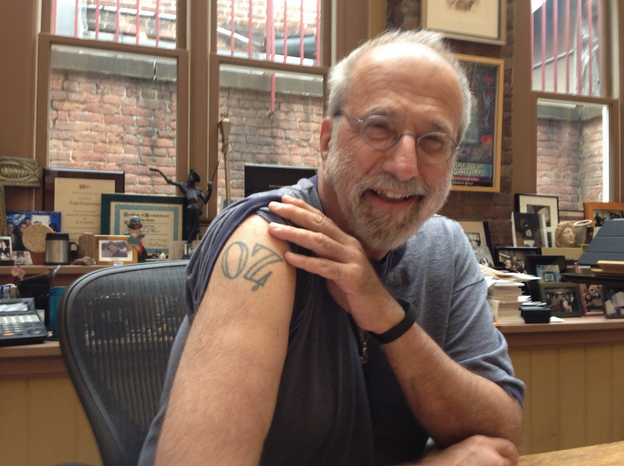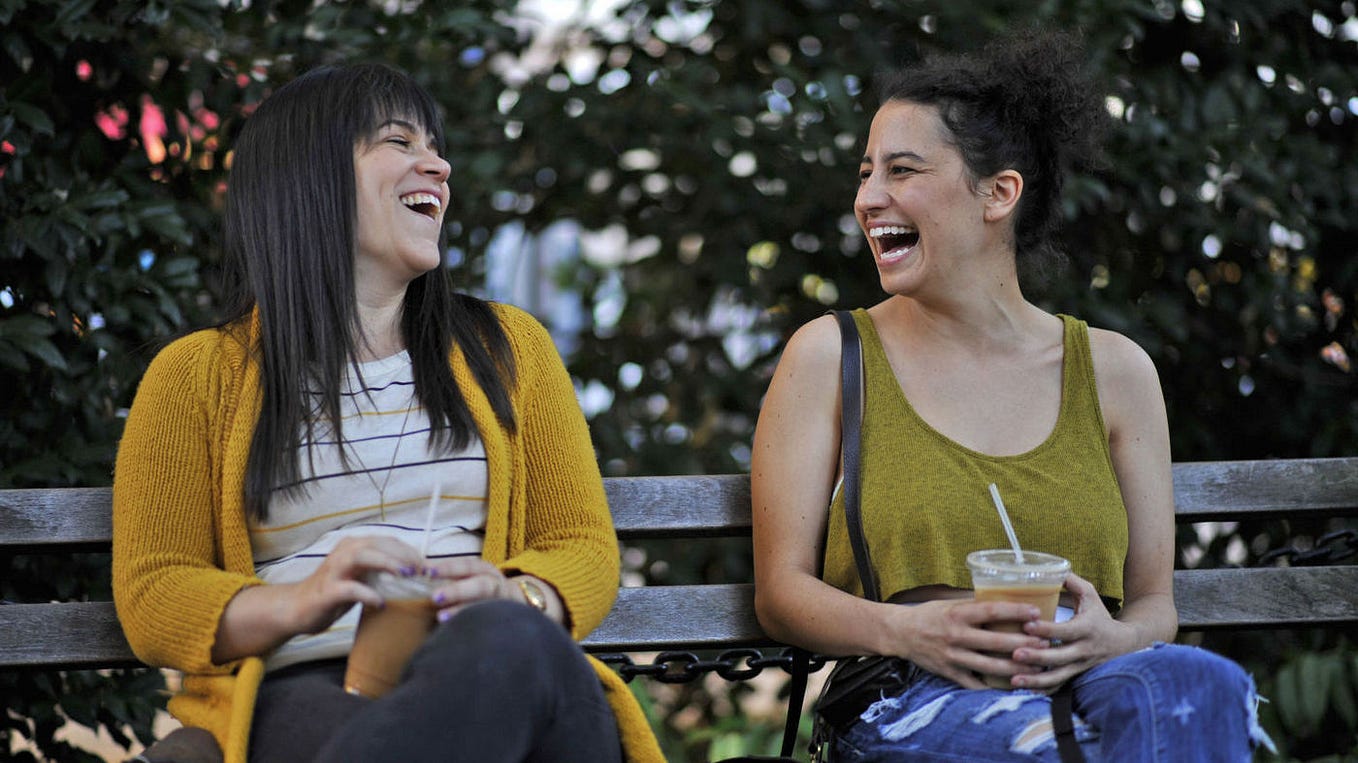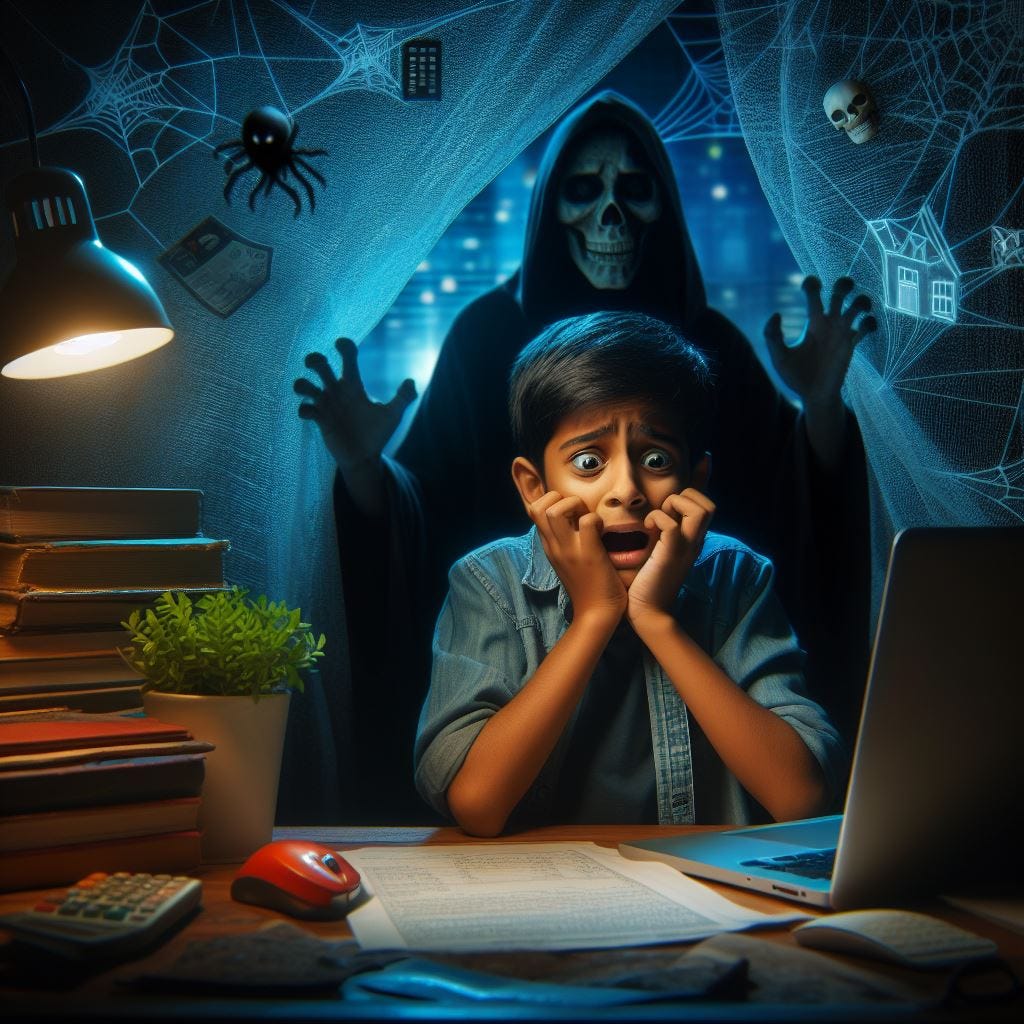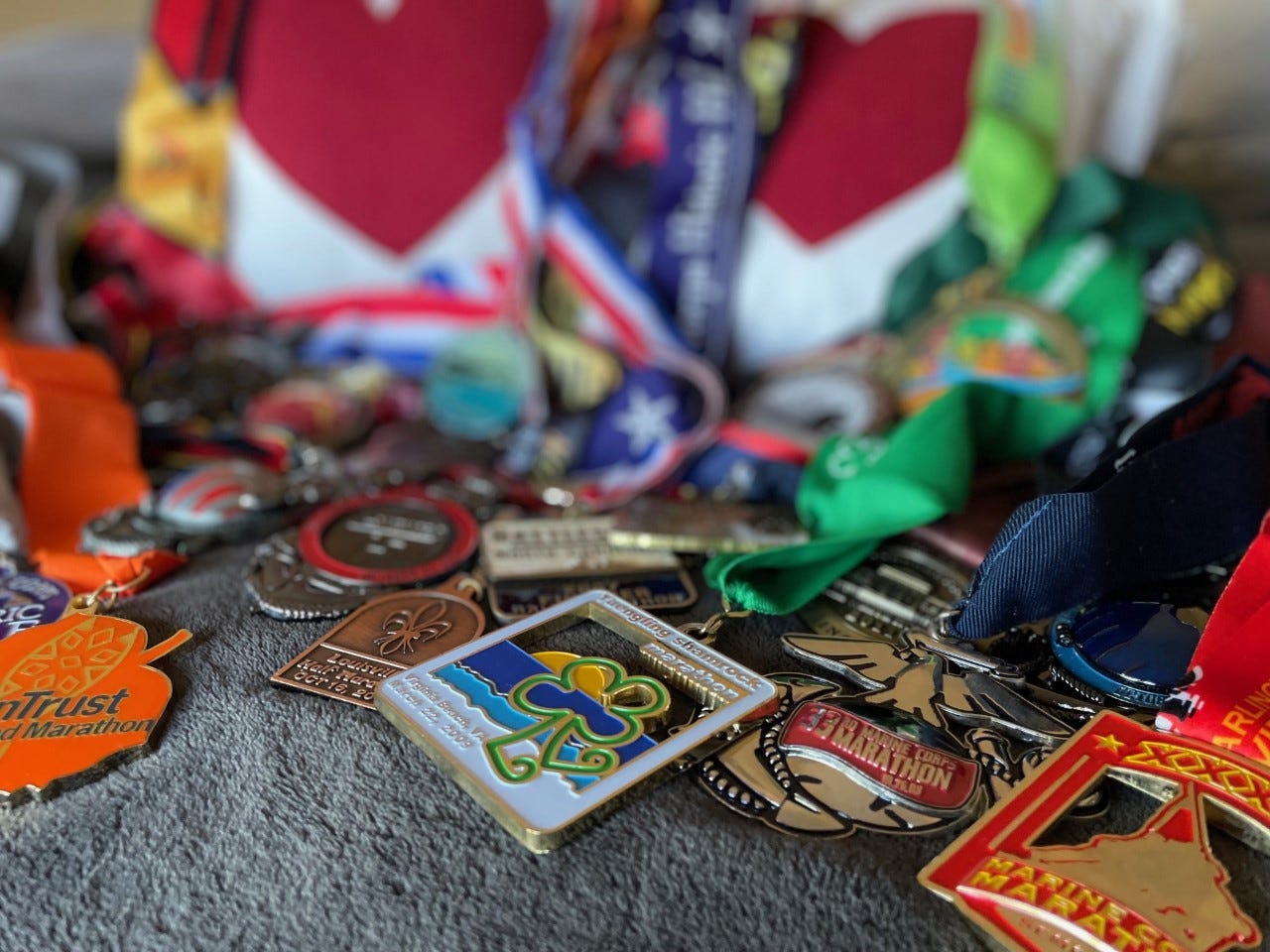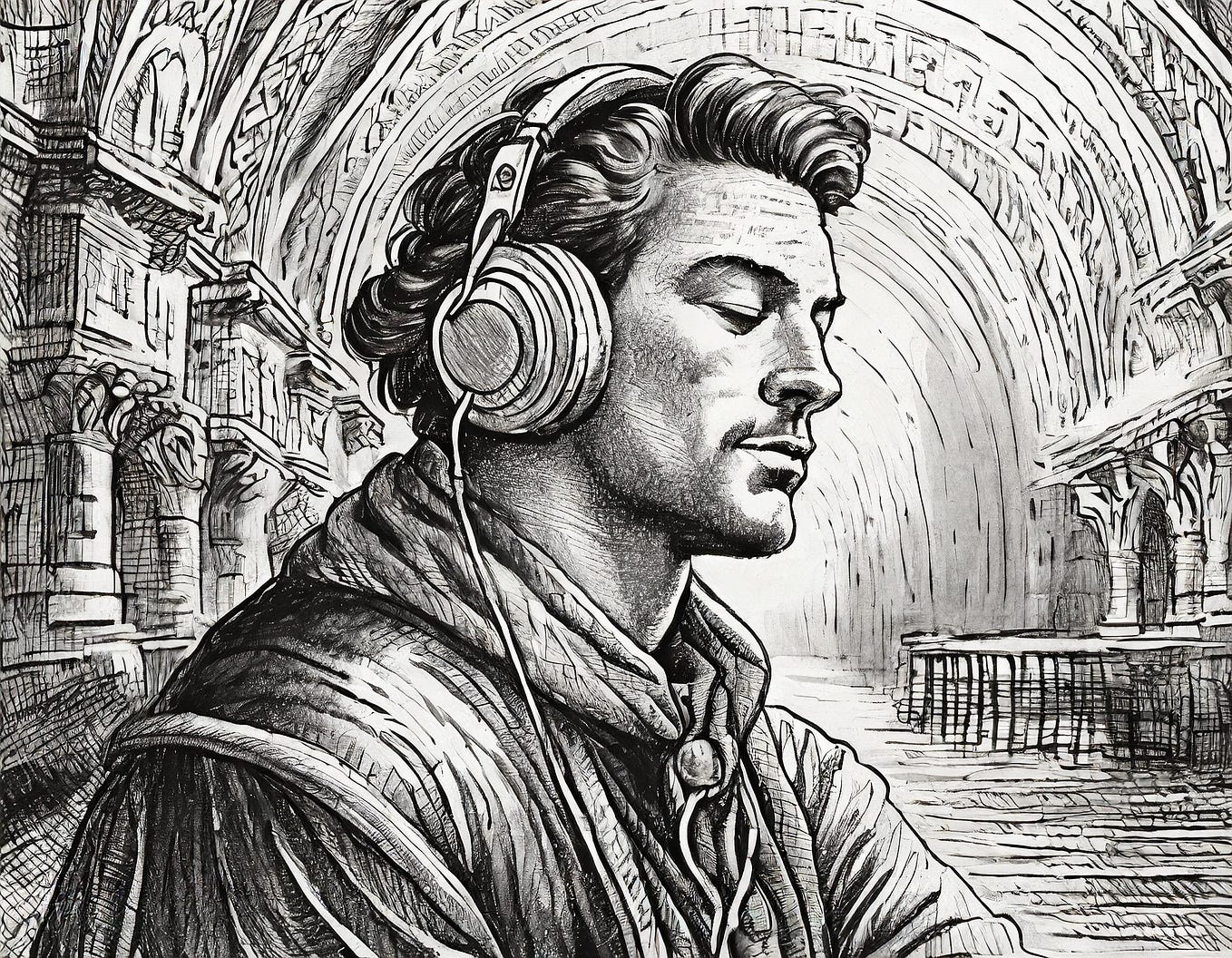Somewhere Over the Wormhole: “Farscape” 15 Years Later
Interview with Farscape creator Rockne S. O’Bannon — and we didn’t even need to use translator microbes.
March 2018 marks fifteen years since beloved cult Sci-Fi Channel show Farscape was canceled — like so many shows before its time. The brainchild of showrunner Rockne S. O’Bannon and Brian Henson of The Jim Henson Company, Farscape entered dimensions of weird and wild that have made it a cornerstone of science fiction storytelling to this day. The show followed contemporary Earth astronaut John Crichton (Ben Browder), who was shot through a wormhole, ending up in a distant part of the universe aboard a ship — a living ship — full of strange alien lifeforms in the midst of escaping a ruthless galactic military organization known as the Peacekeepers. As Crichton exclaims within his first hours in this strange, fantastic world, “Boy, was Spielberg ever wrong. Close encounters my ass!”
Farscape ran for four seasons on the Sci-Fi Channel from 1999–03. After its cancellation, the show regained life in the form of The Peacekeeper Wars, a three-hour miniseries the following year, which was instigated by a huge fan campaign to revive the show. It also continued as a comic book published by BOOM! Studios.
In late 2017, The Paley Center for Media spoke with Rockne S. O’Bannon to reflect on the past and take a look into the future.
As John Crichton would say, look downwards, and share the wonders I’ve seen.
This interview has been edited for length.
Paley Center: Have we seen the last of Farscape?
Rockne S. O’Bannon: Fingers crossed we haven’t. Brian Henson, The Henson Company, and I are in the midst of trying to get a script in shape. And the intention is to do it as a feature. That’s what we’re aiming for.
PC: So you guys have been talking about that for three years, though.
RO: We’ve been talking about that for a long time. It’s a passion project of Brian’s. Like the original series, he loves it and won’t let go. We originally developed Farscape in the early nineties for the then pretty young Fox network and it didn’t fly there because we couldn’t afford to just shoot a pilot. It would be too expensive, so we needed an eleven-episode order to amortize the cost of building the sets and the prosthetics and all that. So it didn’t fly at Fox, and Brian, much to his credit, just wouldn’t let go. We kept taking it out, we’d dust off the creatures and the four scripts we’d developed for Fox and finally along came exactly what we needed, which was the Sci-Fi Channel. In 1998/1999, they bought it and gave us a year commitment.
Then years later, once the show was cancelled, Brian pretty much immediately said “no, we should try to get this up and running again.” It was just a matter of coordinating schedules and that sort of thing. Right now, we’re in the midst of working on a script. We hope to — I know Brian’s directing a movie right now, but it would be great if we could actually get this up and running next year sometime.
PC: What’s the biggest challenge in getting the theatrical film made? Would you be bringing back the original cast members?
RO: The intention is to certainly bring back the original cast members. It’s one of the big questions for any feature film that’s based on a TV show. As I recall X-Files went through this when they were doing a feature at the same time the series was still on the air. But then it becomes a matter of, when do you place this historically within the world and what new characters do you introduce and all that while obviously making sure it’s still Farscape. And one of the things about Farscape was this incredible unpredictability. It’s willingness to go absolutely anywhere the stories or the characters wanted to go, we let them go there. That’s a really interesting thing to try to bring to a two-hour Farscape feature and something you’re hoping will have an appeal and an appeal to a new audience, too. We’re juggling all of those things, but definitely our interest is in having the original cast in there and their characters. We’re trying to make it a bigger and better adventure.
PC: Looking back now, what do you think was your biggest takeaway from your experience working on Farscape?
RO: Probably the biggest was the extreme freedom we had. We started out on the Sci-Fi Channel and the show was actually ordered or purchased by one regime and then that regime left while we were still prepping the show. The new president of the network who came in, who was only there briefly, but he thought it was just gonna be a Muppet show. He didn’t know what it was. He literally called me in and said, “Please just make it as weird as you possibly can.” That was the greatest thing you could hear from a network guy! Plus, like I said, it wasn’t really on his radar. He wasn’t really interested in it, so he pretty much left us alone and then off we went. As it went on, I think everyone recognized, certainly at a network level and the Henson level, that the thing that distinguished the show was just how incredibly far outside any kind of the conventions of sci-fi TV it was. The farther out it would get the more it succeeded, the more it distinguished itself. And that freedom continued up until the very very end. Yeah, definitely a level of creative freedom that I’d never experienced before or since.
PC: I’ve read a lot about the reference to the Star Wars cantina and the role that that played. I am wondering if you were influenced by anything else in the creation and execution of Farscape? To me, there seems to be these very obvious analogies to The Wizard of Oz, but I’m wondering if you ever thought of that or if that was intentional?
RO: [Laughs] You’re the first person to ever reference that and you’re absolutely right. As you were asking your question, the first thing I was going to say was “nobody’s ever seen The Wizard of Oz in this.” There was a draft of the pilot scrapped early on where there’s four or five pages that take place on Earth with John Crichton, the lead, before he has a wormhole accident. And I literally had in one draft three or four other scientists who were Earth representations of D’Argo and Zhaan in the other world. So it was a very direct parallel between The Wizard of Oz, where you’ve got the characters of the Scarecrow and Cowardly Lion and all that, in the two different worlds. Lots of The Wizard of Oz in this and that got taken out to shorten the number of characters.
Obviously Star Trek is everybody’s reference point to science fiction and my main thing there was that I wanted something that was the antithesis of the military hierarchy of the Enterprise. The farthest I could get from that was a ship with no military hierarchy and, in fact, to go even further, escaping prisoners who have their own missions, their own things they want to accomplish. All they have in common is that they want to get away and that bonds them. I love Star Trek, so I hesitate to say anti-Star Trek because it’s not really in the interest of doing anti-Star Trek. It was more “what’s an interesting variation of Star Trek?”
The other thing that I think helped us a lot was that we shot in Australia. We had access to all of these really incredibly artisans that are there, in terms of the prosthetic work, but also just the design and props and all that. That’s the country of Mad Max and Road Warrior. We got a lot of that wonderful, extreme creativity from the Australian imagination. That I think helped us a great deal. I would say, throw a little bit of Mad Max in there, too.
PC: Back to The Wizard of Oz question, did you ever have it in mind that it was all a dream?
RO: No, no. It was never that, no no. It was just that idea of someone who’s “in Kansas” and then find themselves “not in Kansas anymore.” I think that, I’m not sure if it was in the show or not, but certainly in the pilot script there was a reference “I don’t think we’re in Kansas anymore.”
PC: I’m pretty sure there are times Crichton does refer to himself as Dorothy in some sense.
RO: Oh, that I’m sure. My mother was actually in The Wizard of Oz. She was a dancer at MGM at the time. She’s 5’7,” so not short, but she was a Munchkin. They would actually film the backgrounds of scenes with full-size people, and she was under contract at MGM. So, yeah, my mother can lay claim to having been a Munchkin in The Wizard of Oz, which wasn’t my inspiration, but my homage to her.
PC: Design was such an integral part of the show. Were you involved in the design elements, overseeing or in any capacity?
RO: As showrunner, the buck stops with you, so everything is filtered up to you eventually. Having said that, there were incredible creative people at our disposal. Dave Elsey, who was head of the creature shop, went on to win an Academy Award for makeup work. Ricky Eyres, who was our original production designer, was out of the UK. Just amazing. Creative. Very willing to think outside the box. But also pretty seeped in historical design and that sort of thing. The Peacekeeper logo design was very much based on revolutionary-era Russian symbols. And then the shapes of Moya’s hallways and passageways were based on a Spanish designer, Gaudi. If you look at any of his work, you’ll see a lot of that same kind of shapes. One is very sort of soft and feminine, the Moya side of it, and the other is the much more stern angles of 1917 Russia, which was very much the militaristic Peacekeeper.
PC: I read an article that said in Farscape, “the writers were known to invent entire plot lines on the spur of the moment, inspired by serendipitous acting or design choices. Actors might improvise or ad-lib on camera.” Is that true?
RO: It’s true, both very true. That’s a wonderful, organic situation, so that the prop department would come up with things and then we would go, “this is awesome, maximize it’s use,” and find other things that we want to make it do. Then Ben Browder in particular was just terrific and he ended up writing scripts for us — and he’s writing now. A very creative guy with inventiveness. He was very good at coming up, spur of the moment with the best of the John Crichton–isms. I wouldn’t be surprised if some of the Dorothy references were from him. We’d provide the character with what we thought were delicious, wry Earth references, but he’d come up with a bunch of them on his own.
In the writers’ rooms, there are two ways of talking: One is you’re trying to come up with stories and temp dialogue or ideas for dialogue for the characters which could go onscreen, but then there’s this whole sub-rosa conversation going on where you’re referencing other things and making sort of smart aleck comments on the material. I told the writers right up front that “all of these things that we’re saying on the side, those are the things we should be putting in John’s mouth.” I don’t really care if everyone gets the reference; if I get it, a lot of people will. In the first season, John Crichton was being put into a torture chair, and in the writers’ room we kept referring to it as the comfy chair, which is a Monty Python reference. When I got the first draft of the script from the writer, nowhere did John Crichton refer to it as the comfy chair and I told him, “I want John to refer to it was the comfy chair.” Solely because it makes us laugh and it’ll make somebody laugh somewhere. That sort of thing was super important to us, moving some sub-rosa conversations we have in the writers’ room and putting that on screen.
PC: Were there any characters whom the actors ended up shaping in a different direction than you had initially planned?
RO: The primary one, starting right from the top, was John Crichton. As conceived, John Crichton was always supposed to be very much the outsider. He was the guy who came into the situation where he was the only human and largely didn’t even look like any of the other people; what he looked like were the bad guys. It was always my feeling upfront that he would stay in that role for quite a while, and he did. But then, because Ben Browder is a really smart guy, it kind of very correctly evolved where he wasn’t that much of a babe in the woods for as long as I thought he would be upfront. It got to a point where after the first season, we got him out of his Earth uniform and he was in leather and much more steeped in things there. That was probably the biggest, most obvious one.
And there were characters like Aeryn (Claudia Black). It was a joy to watch Claudia, who is truly an incredible actress, really remarkable, and to watch her start to shoulder, even in the first season, the heavier, more emotional side of Aeryn, which was clearly not a part of her upfront in the first few episodes and shouldn’t be. There was really this shift that started to change with her as she got to know the others better. Claudia just did that in ways that so impressed and allowed us writers to lean into that emotional side of Aeryn in a much bigger way. In terms of a character shifting, that was intentional, but it was great to have an actor, in Claudia, who could really bring it.
PC: Do you have a favorite episode?
RO: There’s a couple of them. Certainly I’ve got Aeryn and Claudia Black on the mind. In season one, I can’t remember the title of it, but near the end of the first season, we discover Moya, our living ship, is in fact pregnant and is gonna have a baby and Moya now says to Aeryn that she, Moya, would like Aeryn to name the baby. It’s this incredible moment because if you look at season one, obviously Crichton’s arc is key, but a huge huge arc, which is super important to me, is the Aeryn arc. Her arc was all essentially internal. John is learning about this other world and has got a lot of other stuff going on: wanting to get back to Earth, and loneliness. But with Aeryn, she’s on this path of changing from this very straightforward, militaristic, indoctrinated-from-birth soldier into a member of the crew and family aboard Moya. So the very fact that the ship would choose her at the end of the first season to name the baby and Claudia’s performance is just so awesome in that scene. It’s more of a moment than an episode, but that to me is the thing. Probably if you woke me up in the middle of the night and said name a scene from Farscape, that’s the one that I would reference. There’s also an episode, a background episode, called “The Way We Weren’t.” That was a super good one, too. You also get background on Pilot. I love watching shows where two things happen, and I try to do it on my shows: when a character learns something they didn’t know or, even better, having the audience learn something about a character that we didn’t know. [“The Way We Weren’t”] was a great episode because we learned about Aeryn, but we also learned about Pilot, who for the most part was just driving the ship, but suddenly he became a much more complex character after that episode.
PC: Did you have a favorite alien species that you wished could have been more utilized within the show?
RO: Rygel, obviously, a favorite character and we could have had more Hynerians because I think that could have been very interesting to play off of. We attempted that once in an episode where we had a female Hynerian and it was basically the Rygel puppet with a feather boa and lipstick. We just couldn’t get it to work . The Rygel puppet was all done practically. We didn’t have CG in those days, so when Rygel was fully operating, I think there were four operators. The game was always to try to get Rygel in one place and leave him there. That’s why Rygel would so often get stuck in mud or end up in an air vent for an episode or he’s at a gaming table and sitting at the table, because it was easier to not move him around. So I’d say I’d wished he could have more Hynerians, that would have been good. I can’t really think of any others, though I’m sure once I hang up I will, but nothing comes to mind specifically.
PC: In terms of all the work that you’ve done, and there’s been so much for television, where does Farscape fall in your heart? Was it one of the more personal things you’ve done that you feel more proud of? Is it your greatest accomplishment? How do you feel about Farscape for yourself?
RO: Obviously I have affection for all of my work. I mean, everybody has to say that, they’re my children. But with Farscape, as of today, my tombstone will have Farscape listed first among the stuff I’ve done. Obviously, the mission for myself is to try to eclipse that, but Farscape was one of those situations where there are so many factors and variables that you can’t control in terms of how and why it came out as good as people view it because it was this perfect storm, of the Henson Company, with Brian Henson, who’d just taken over the company after his father passed away. He wanted to do something bolder for adults that at the very least could show what the creature shop could do that wasn’t just Muppets. He really wanted to take that big strive. You had ultimately the Sci-Fi Channel, and we were their first original series. They were looking for a flagship show, something big that would make a splash for them, so that was helpful. We had to shoot in Australia for budget reasons, which was the only reason initially, but that was a huge huge creative contribution to the show. And then we got all the right actors who were just truly spectacular and Australian directors who were all these wild guys. The only American director we had, I believe, was Brian Henson. We found our team of Australian directors who were wild thinkers, all the Australian artisans that I mentioned. And we had in our lead Ben Browder, who was a terrific creative partner. And great writers, too. David Kemper, who was my right-hand man, and who I brought onto the SeaQuest DSV. He was actually a CBS executive when I was working my first job, on The Twilight Zone. Nobody told me you’re not supposed to be friends with your network executive, so I did. Ricky Manning, another writer/executive producer, was super, super important and there right from the beginning. It was just this perfect configuration of things that you can put together — like the writing staff and that sort of thing — but then other things that happened to fall into place: Australia, this particular cast, and all that.
PC: This is a sort of silly question, but do you believe in aliens?
RO: Do I believe in them? Look, I have probably the same feeling everybody has. None has ever stood in front of me, so I can’t say empirically, “Yes, there are aliens.” But the universe is so vast, I can assume we’re not alone. That’s a pretty shitty answer, let me see if I can come up with a better one. Do I believe in aliens? Yes, I absolutely do. But I don’t want to start a controversy and say, “Yes, they actually come in and do all the writing like little elves and that’s why the pages of Farscape are so realistic.” Yeah, I’m hopeful. That’s my answer.
PC: So what are you working on now? Other than the film version of Farscape?
RO: I’m working on that, I’m working on lots of series development, because you have to try to do eight to get one. I’m doing that and very excited about a lot of those. A couple of them are originals, a couple of them are adaptations. I also really enjoy supervising young writers, so I’ve got two young writers that I’m supervising — one of whom is Ben Browder’s daughter. She just graduated college and wants to be a writer, so I’m supervising her. She’s really super talented like her dad, so I see her going places. And then the most unusual thing I’m working on is an original dramatic podcast. We’re doing a ten-episode serial thriller for the company PodcastOne, which I hope will be out next year. It’s something I’ve never done before, it’s like writing for an old radio show. It’s challenging and fun at the same time. I intend for it to be very creepy and really kind of get under your skin, so I’m enjoying that right now. The usual suspects, just keeping busy.
PC: Well, I think we’re out of questions, unless you have anything you’d like to add?
RO: No, I was just gonna talk more about my belief in aliens. As I am wont to say, the aliens put my kids through private school and college, so I have a great deal of affection for aliens in general. If real aliens come and they get defined, we know what they really are, then I’m out of work, but let’s hope not.
Paley Matters is a publication of The Paley Center for Media.
David Bushman has been a television curator at the Paley Center since 1992, excluding a two-year stint as program director at TV Land. He is the coauthor of Twin Peaks FAQ: All That’s Left to Know About a Place Both Wonderful and Strange (2016) and Buffy the Vampire Slayer FAQ: All That’s Left to Know About Sunnydale’s Slayer of Vampires, Demons, and Other Forces of Darkness (2017).
Sofia Arnold is a curatorial intern at The Paley Center for Media and senior at Hampshire College. When not working on her capstone project about Jewish representation in television, she’s most likely on a soapbox somewhere, yelling about her severely underappreciated favorite characters.
